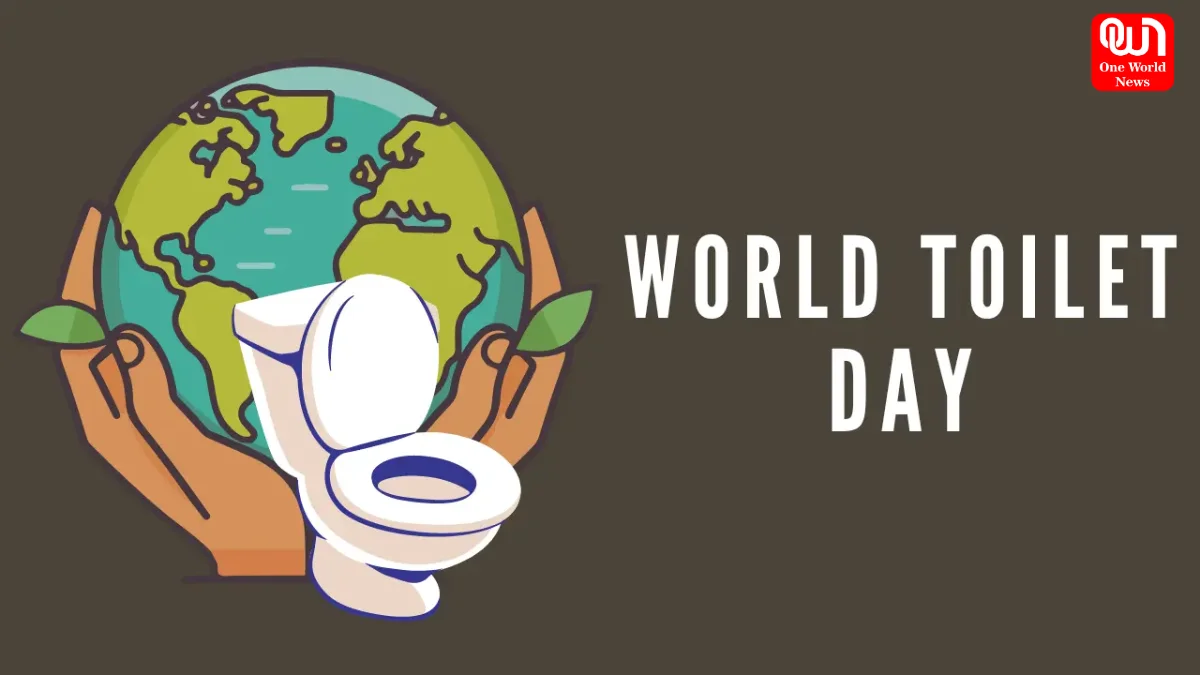World Toilet Day 2025: Promoting Sanitation, Dignity, and Sustainable Hygiene for All
World Toilet Day 2025 highlights global sanitation challenges, promoting hygiene, dignity, and access to safe toilets for everyone.
World Toilet Day 2025: Spreading Awareness About Sanitation, Dignity, and Sustainable Hygiene Solutions for a Healthier Future
World Toilet Day is observed every year on November 19 to raise awareness about the global sanitation crisis and the importance of access to clean, safe, and functional toilets for everyone. The day reminds the world that billions of people still lack basic sanitation facilities, leading to serious health, social, and environmental consequences. Recognized by the United Nations, World Toilet Day calls for collective global efforts to ensure hygiene and dignity for all.
The Importance and History of World Toilet Day
Origin of World Toilet Day
World Toilet Day was established by the World Toilet Organization in 2001 and later adopted by the United Nations in 2013. It emphasizes the critical need for improved sanitation across the world. The initiative aligns with Sustainable Development Goal 6 (SDG 6), which aims to ensure availability and sustainable management of water and sanitation for all by 2030.
Why the Day Matters
Sanitation is a basic human right, yet about 3.5 billion people still live without safe toilets. Poor sanitation leads to the spread of deadly diseases such as cholera, diarrhea, and typhoid. World Toilet Day sheds light on these challenges while inspiring governments, NGOs, and individuals to take action toward providing sustainable sanitation solutions.
The Theme of World Toilet Day 2025
Focus on Sustainability
Each year, World Toilet Day adopts a theme related to global sanitation issues. The 2025 theme focuses on “Sustainable Toilets for a Healthy Planet,” emphasizing the need for eco-friendly sanitation systems that reduce waste, save water, and protect the environment.
Linking Sanitation and Climate Change
Climate change has a direct impact on sanitation systems. Floods, droughts, and rising temperatures affect water supply and waste management. The 2025 theme encourages climate-resilient toilets that work efficiently even in extreme weather conditions.
Challenges in Global Sanitation
Lack of Infrastructure
In many developing countries, sanitation infrastructure is either inadequate or nonexistent. Rural areas and urban slums often lack proper sewage systems, leading to open defecation, which poses serious health hazards. World Toilet Day highlights the importance of investing in sanitation infrastructure and community-based hygiene programs.
Health Risks
Unsafe sanitation contributes to the spread of infectious diseases. Diarrheal diseases alone cause hundreds of thousands of preventable deaths annually, especially among children. Improved sanitation and hygiene practices can significantly reduce such health risks.
Social and Gender Inequality
Women and girls are among the most affected by poor sanitation. Lack of privacy, especially in schools and workplaces, affects their safety, dignity, and attendance. World Toilet Day emphasizes creating inclusive sanitation facilities that cater to everyone’s needs, including women, children, and people with disabilities.
Read more: World Prematurity Day 2025: Raising Awareness for Preterm Births and Supporting Infant Health
Global Efforts and Solutions
Government Initiatives
Many countries have launched national programs to improve sanitation. In India, for instance, the Swachh Bharat Abhiyan (Clean India Mission) has built millions of toilets across rural and urban regions, reducing open defecation rates drastically. World Toilet Day 2025 highlights such success stories as models for global change.
Innovation in Sanitation Technology
Innovations such as bio-toilets, composting toilets, and waterless sanitation systems are revolutionizing hygiene management. These sustainable technologies help conserve water and transform waste into useful resources like biogas and compost, contributing to environmental protection.
Community Participation
Local communities play a key role in promoting sanitation. Through education and awareness campaigns, people learn to adopt hygienic practices and maintain their toilets properly. World Toilet Day encourages collective community responsibility for sustainable hygiene.
The Role of Education and Awareness
Changing Perceptions
In many cultures, discussing toilets and sanitation remains taboo. World Toilet Day aims to normalize these conversations, making it easier for societies to address the issue openly and effectively. Breaking this stigma helps people understand that sanitation is essential for health and dignity.
Hygiene Education in Schools
Teaching children about hygiene and sanitation at an early age builds lifelong habits. Schools that provide clean toilets and running water encourage better attendance and academic performance, particularly among girls.
Role of Media and Social Campaigns
Media coverage and digital campaigns play a powerful role in spreading awareness. On World Toilet Day, social media platforms amplify messages about global sanitation challenges and encourage donations, volunteering, and advocacy.
Read more: Apple Cider Day 2025: Celebrating the Sweet and Tangy Tradition of Autumn’s Favorite Drink
How Individuals Can Contribute
Support Sanitation Projects
Individuals can support non-profit organizations working to provide toilets in underserved communities. Donating funds or volunteering time can make a tangible difference in improving sanitation standards.
Practice Hygiene at Home
Simple habits like handwashing with soap, maintaining toilet cleanliness, and conserving water help prevent diseases and protect the environment. Personal responsibility strengthens community health.
Spread Awareness
Using social media to share facts, stories, and educational resources about World Toilet Day can inspire others to take part in the global sanitation movement.
Conclusion
World Toilet Day 2025 is more than an awareness event—it’s a reminder that sanitation is fundamental to health, equality, and human dignity. Access to safe toilets is not a privilege but a right. By supporting sustainable solutions, promoting hygiene education, and working collectively, we can achieve a cleaner, healthier world for everyone. This World Toilet Day, let’s commit to ensuring that no one is left behind when it comes to sanitation and dignity.
We’re now on WhatsApp. Click to join.
Like this post?
Register at One World News to never miss out on videos, celeb interviews, and best reads.








